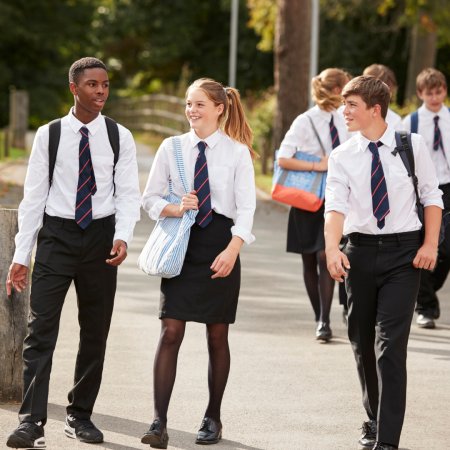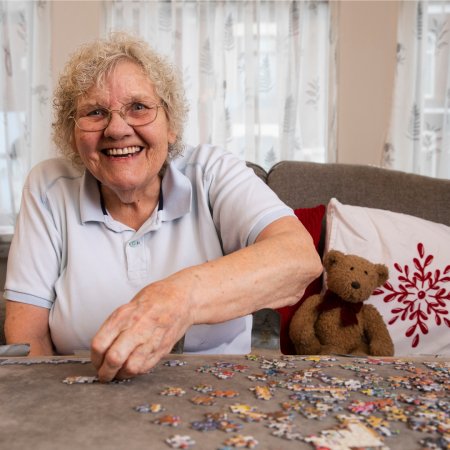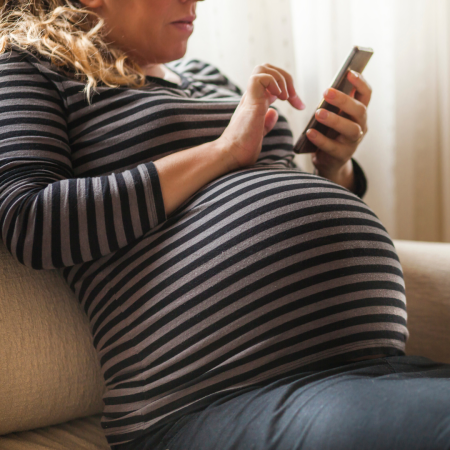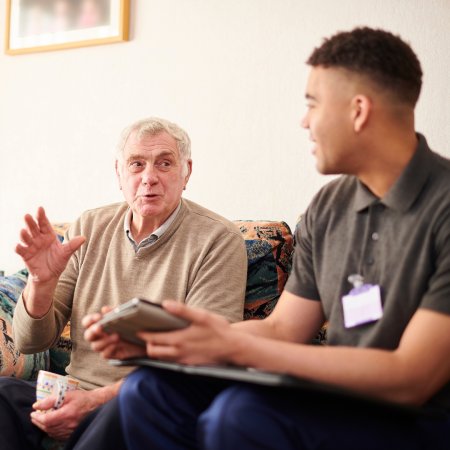Vaccines are vital for protecting the population of Kent and Medway; vaccines are the best defence we have against viruses including flu, Covid-19, meningitis, and measles, mumps and rubella.
Eligible residents are encouraged to protect themselves by making sure they are up-to-date with all their vaccinations.
Vaccines are extremely safe. All vaccines must go through the same regulatory approval process as any medicines to make sure they meet strict safety standards and offer high levels of protection.
Flu vaccines are safe and effective. They're offered every year on the NHS to help protect people at risk of flu and its complications.
The best time to have a flu vaccine is in the autumn before flu starts spreading.
The seasonal flu campaign runs from September to March.
You can have a free NHS flu vaccine at:
- your GP surgery
- a pharmacy offering the service (if you're aged 18 or over)
- some maternity services, if you're pregnant
- catch-up community clinics (for children).
Those eligible for a flu vaccine include:
- care home residents
- adults aged 65 years and over
- pregnant women
- all children aged two or three on 31 August 2025
- primary school children (Reception to Year 6)
- secondary school children (Year 7 to 11)
- those who care for an older or disabled person
- individuals who are immunosuppressed
- frontline health and social care workers
- people under 65-years-old with certain medical conditions.
The children's nasal spray flu vaccine is given in schools by a community immunisation team.
Babies and children aged six months to two years with certain health conditions will be offered a flu vaccine injection instead of the nasal spray.
Find out more and book a community clinic for children aged two or three, primary school children and secondary school children.
Health and social care workers
Health and social care staff are eligible for the free flu vaccine this autumn.
If you are vaccinated but catch flu this winter, you are likely to have milder symptoms, recover faster and miss less time at work.
You are eligible for the vaccine if:
• you work in a care home for older adults
• you work as a frontline health worker.
The winter vaccine programme is targeted at those delivering direct care, whether employed by an NHS provider, local council, independent or third sector employers.
The flu vaccine is available at your local pharmacy. Find a pharmacy offering the flu jab.
Please take your employee ID badge or proof of employment to your vaccine appointment, in case it is requested.
Eligible patients can book an appointment for the Covid-19 vaccination from Monday, 1 September.
Those eligible for a Covid vaccine include:
- care home residents
- adults aged 75 years and over
- individuals aged six months and over who are immunosuppressed.
You will receive an invitation from the NHS if you are eligible for the vaccine.
You can book a vaccine appointment online, via the NHS App or by calling 119 for free when the booking system opens. Appointments will be available from 1 October.
People who are newly immunosuppressed
It's important local year-round provision of Covid-19 vaccination remains accessible for people who have a health condition or treatment that severely weakens their immune system and may need additional protection before the autumn.
This includes the following:
-
Individuals aged six months and over and have a health condition or are receiving treatment that severely weakens their immune system outside of a seasonal Covid-19 vaccination campaign.
-
Individuals who require revaccination following Chimeric Antigen Receptors Cell Therapy (CAR-T) or stem cell transplantation and recovery.
You will need to request a referral from your GP practice in the first instance. If you have any questions, please email the Vaccination Team.
Vaccination for people with severe allergic reactions
The Covid-19 vaccine is still recommended for people with a history of allergic reactions provided those are not linked to ingredients within the vaccines.
We have a dedicated process for supporting people with severe allergies. This includes specialist allergy advice from Guys and St Thomas' Hospital to help local clinicians and their patients agree the best approach for them.
If you have a history of severe allergic reactions, especially anaphylactic shock, please contact your GP when you are eligible for the vaccine. If appropriate they will be able to arrange a referral to a hospital-based service to receive the vaccine.
Please do this rather than booking a vaccine appointment directly through the national booking service.
Treatment for people at highest risk of Covid-19
Antibody and antiviral treatments are offered to people with Covid-19 who are at highest risk of becoming seriously ill.
People can use a positive lateral flow test (LFT) to be referred for treatment. It is important treatment starts within five days of a positive test.
Most people who have conditions that put them in the highest risk category will have been contacted directly with information about how to get these treatments, if needed.
Treatments for Covid-19 are for people aged 12 and over who:
- are at highest risk of getting seriously ill from Covid-19
- have symptoms of Covid-19 that started within the last five days
- have tested positive for Covid-19 by PCR or LFT within the last five days.
If you think you're in the highest risk group and need to access Covid-19 treatment, follow these steps to be considered for a referral.
Keep rapid lateral flow tests at home
If you're eligible for Covid-19 treatment, you should keep rapid lateral flow tests at home.
You may be able to pick up free rapid lateral flow test kits from your local pharmacy if you're eligible for treatment.
The pharmacy may ask you questions about your medical history to confirm you're eligible for free tests. If you have a copy of a letter or email sent to you by the NHS that says you're eligible for Covid-19 treatment, take this with you. A letter or email is not essential, but it will help the pharmacy to confirm you're eligible for free tests more easily.
Someone else can collect free tests on your behalf, for example, a friend, relative or carer. If you do not have a friend, relative or carer who can collect your tests for you, you may be able to book a volunteer responder by calling 0808 196 3646.
Anyone collecting free tests on your behalf needs to give the pharmacy your details, including your full name, address, date of birth, NHS number (if available) and medical condition(s) to confirm your eligibility. They should also bring any copies of letters or emails that have been sent to you by the NHS about Covid-19 treatments.
Take a rapid lateral flow test if you get symptoms
If you have any symptoms of Covid-19, take a rapid lateral flow test as soon as possible, even if your symptoms are mild. Only take a test if you have symptoms. You can also use tests you've paid for, for example, a test you've bought from a supermarket or pharmacy.
If your test is positive, phone your GP surgery, NHS 111 or hospital specialist
Phone your GP surgery, NHS 111 or hospital specialist as soon as possible if your test result is positive. They'll decide if you need a referral for an assessment for Covid-19 treatment or may carry out the assessment themselves.
As part of the assessment, you may be asked what other medicines you take or receive, including any vitamins and minerals, so it's important to have a list of these ready.
If you're eligible for treatment, it's important to start the treatment as soon as you can. Treatments for Covid-19 need to be given quickly after your symptoms start to be effective.
If you're prescribed capsules or tablets, the medicine can be collected on your behalf by someone else, such as a friend or relative. You'll be advised where the medicine can be collected from. Alternatively, the NHS may be able to arrange for the medicine to be delivered to you.
If the treatment needs to be given as a drip in your arm (infusion), you'll usually get it at your local hospital or in a local health centre.
You'll get instructions on where to get the treatment and how to get there and back safely.
If your test is negative, do a total of three tests over three days
If your test result is negative, but you still have symptoms of Covid-19, you need to do a total of three rapid lateral flow tests over three days.
For example, if you did your first test today, you should do a second test tomorrow and a third test the day after.
If any test result is positive, you can stop testing and call your GP surgery, NHS 111 or hospital specialist as soon as possible.
Find out more about treatment for Covid-19 on the NHS website.
Resources
- Covid-19 vaccine easy read leaflets
- Covid-19 vaccine guides for older adults (multiple languages)
- What to expect after vaccination (multiple languages)
- Information for women of childbearing age, currently pregnant or breastfeeding (multiple languages)
- British Sign Language video on Covid-19 vaccination





